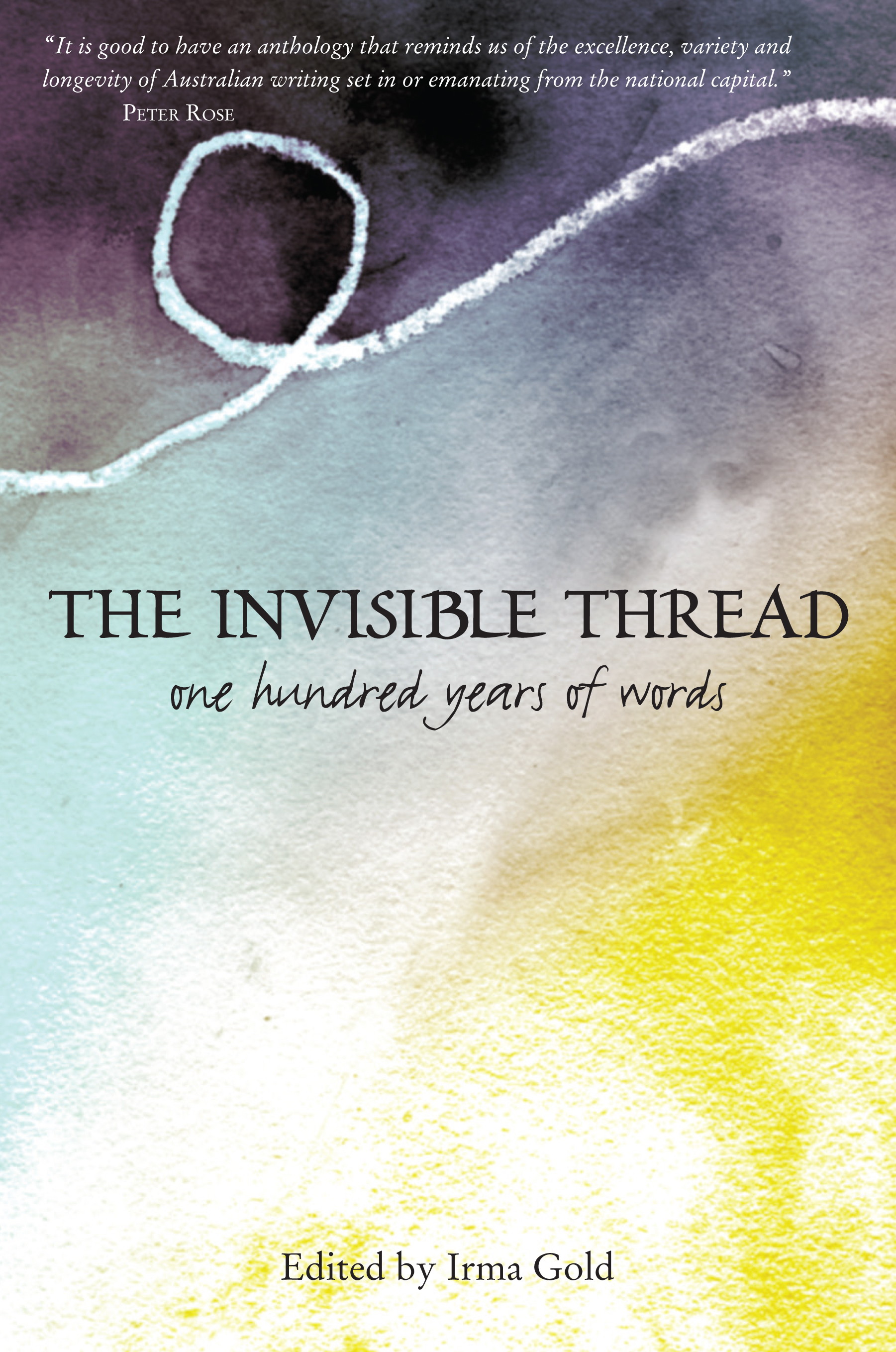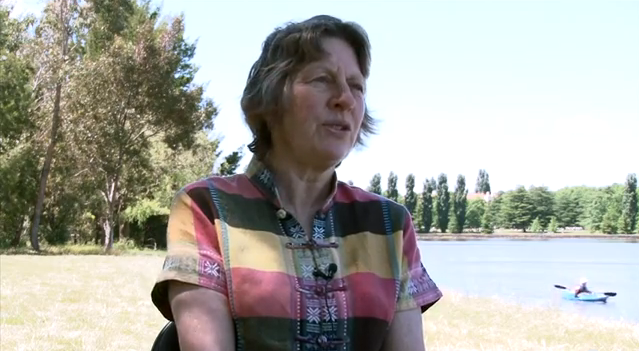The Invisible Thread series: Dorothy Johnston
We’ve finally reached the end of our video interview series but we’re going out with a bang. When I spoke to Dorothy Johnston on the shores of Lake Burley Griffin she was feisty, outspoken and honest. We talked about everything from the importance of having the ‘right’ length of jeans and going to the ‘right’ bars in literary Melbourne, to hitchhiking from Sydney to Canberra during the time of Ivan Milat, how her writing set in Canberra is a way of saying ‘up you’, and why the Seven Writers’ iconic status is ‘a false view’.
Dorothy was one of three founding members of Seven Writers (I also spoke to fellow member Marion Halligan recently and that interview can be found here). I’m always fascinated by writers’ groups, particularly the ones that work, because so many don’t. The idea of a regular gathering of like-minded colleagues who are mutually supportive and constructive in their criticism is so attractive. Yet most groups seem to falter for one reason or another. The longevity of Seven Writers is a mark of its success—for 18 years these women shared their lives and their work.
During our interview Dorothy related a story about a celebration Seven Writers held when the collective number of their published books exceeded the combined total of their children and grandchildren. As a mother of three, this intertwining of books and children is greatly appealing. All seven of them were mothering and writing and carving out their own paths, separately yet together.
Read More »The Invisible Thread series: Dorothy Johnston
Given their success, it’s little wonder that Seven Writers is held up as an ideal, but Dorothy asserts this as ‘a false view’. She says: ‘It took us ages to get off the ground as a writers’ group and we weren’t at all well-known…For ages it didn’t seem as if we would survive at all. So that business of the kind of iconic status is not something that we have ever fostered or sought.’ And yet she acknowledges the immense value of the group. ‘You knew you would get honest responses about a piece of writing. That you could take anything to them. You could take ideas to them or some scrappy first draft, and people would pay attention. That’s immeasurably hard to find.’
 ‘The Boatman of Lake Burley Griffin’, included in The Invisible Thread, is a story that came out of that time and marks the beginning of Dorothy’s emotional connection with Canberra. It arose from the traumatic experience of her 11-month-old baby contracting salmonella poisoning. For days he lay in the Canberra Hospital, situated beside the lake, hovering between life and death. Dorothy found herself in a state of suspension. Unable to go home, she spent time looking out over the lake. Like many of us, Dorothy moved to Canberra reluctantly, but when her son survived she says ‘it became the place of my heart’.
‘The Boatman of Lake Burley Griffin’, included in The Invisible Thread, is a story that came out of that time and marks the beginning of Dorothy’s emotional connection with Canberra. It arose from the traumatic experience of her 11-month-old baby contracting salmonella poisoning. For days he lay in the Canberra Hospital, situated beside the lake, hovering between life and death. Dorothy found herself in a state of suspension. Unable to go home, she spent time looking out over the lake. Like many of us, Dorothy moved to Canberra reluctantly, but when her son survived she says ‘it became the place of my heart’.
The Canberra Hospital no longer exists. It was imploded in a public event with much fanfare that ended, appallingly, in the death of a child. For our interview Dorothy and I meet at this significant site, so bound up in memories and meaning. It is a blustery day and the leaves on the silver barks flip their smooth ivory backs at us. As we talk about the mythical boatman of her story I half expect him to glide into view. To say to us, ‘I’m taking you where you want to go. You’ll recognise it when we get there.’ He doesn’t show, but later a couple of kayaks paddle silently into the camera frame. It’s as close as we’re going to get.
I hope you’ve enjoyed watching these interviews as much as I’ve enjoyed making them. And a big thank you to Dylan Jones, cameraman and editor for all 19 videos. You can catch up on any you’ve missed here, but first click on the triangle below and spend a few minutes with Dorothy.
https://www.youtube.com/watch?v=ArdnY-aUNXI


